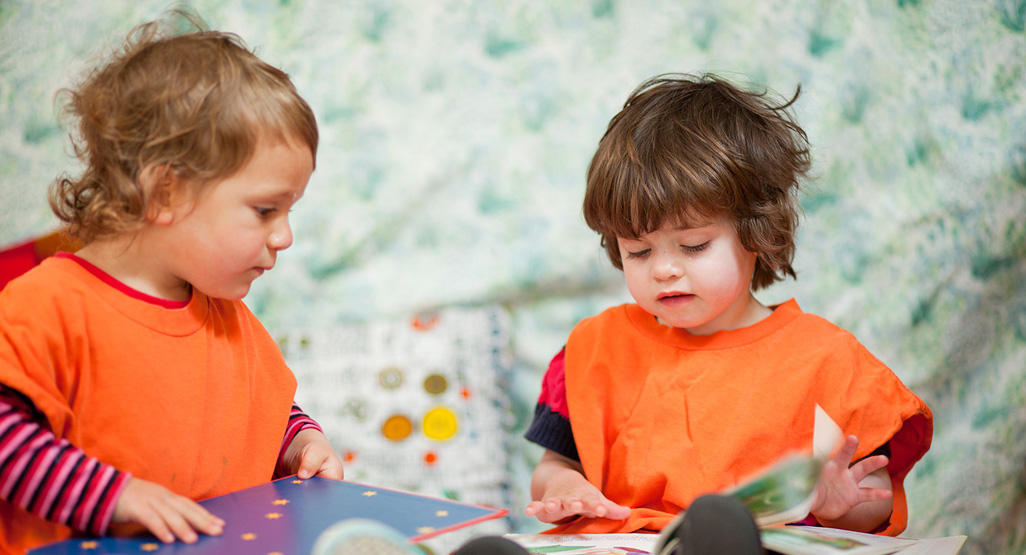In this article
Why does my preschooler find it hard to share?
Although your child is starting to develop empathy, and knows that they need to take turns, they aren’t mature enough yet to resist all of their impulses. Most three-year-olds and four-year-olds put their own needs first, and can get upset when the needs of others get in the way (Zero to Three nd).Your child may not understand enough to realise that even if they don’t have a toy now, it’ll be their turn soon. So don’t be surprised when you see them grab a truck from a friend, or refuse to let their sibling look at their favourite book.
Beneath the surface, though, your little one’s sharing skills are maturing. This is partly because they love getting praise from you and other trusted adults. They may enjoy drawing pictures for teachers, making presents for you and sharing snacks with their friends. You can sow the seeds of generosity by gently encouraging your child to share.
How can I teach my preschooler to share?
Set a good exampleYou are your child’s greatest role model when it comes to sharing. Let them see you give and take, compromise, and share with others in everyday life.
Teach your child cooperative games in which they have to work together with others, rather than competitive games which focus on winning. You could try doing a jigsaw puzzle together, taking turns to add pieces. Or you could blow up a balloon and play balloon tennis.
Share projects, too: water the plants, tidy up toys, or unpack the shopping together.
As far as you can, try to model and point out sharing and turn-taking in family life. When you and your partner share food together, point out how nice it is to your preschooler and ask if they would like to share too. If you notice another child or sibling sharing, praising their behaviour in front of your little one will encourage them to do the same (Pathways nd).
Talk about sharing
If your preschooler has a play date planned, have a chat with them beforehand about how important it is to share. Let them know that it’s normal to play with a friend’s toys if you go to their house, and vice versa. It may seem obvious to you, but it won’t be to your little one!
Where possible, encourage your preschooler to put themselves in their friend’s position: "If you went to Addy’s house and he didn’t let you play with any of his toys, how would you feel?". (Pathways nd)
If your child squabbles with a friend about a toy, try to intervene before things become too heated, and explain that each of them will have a turn (Pathways nd). If either child starts having a full-blown tantrum, try to remove your child from the area until things have calmed down.
Once both children are ready to listen, discuss the situation with them in a thoughtful and compassionate way. The discussion only needs to be a minute long as children have short attention spans at this age. You can then quickly move the discussion towards a plan, "So, Ben is going to play with it for the first two minutes, then it will be your turn to play with it for the next two minutes."
If your child's friend is holding a toy back, explain how they may be feeling. For instance: "Josh really likes that toy, and he doesn't want anyone to play with it right now. Can you find something else to play with?"
Help your preschooler put their own feelings into words, too. You may need to give them the words, for example by saying, "It sounds like you feel cross", or "You’re looking a bit disappointed". This also reassures your child that you understand how they might be feeling (Zero to Three nd).
Don't punish but do step in
It can be embarrassing to see your child snatching a teddy from their friend, or throwing a tantrum because their turn with the trucks has ended. But if you tell your child that they’re selfish, or force them to hand over a prized possession of theirs, they may get the message that sharing has negative consequences.
When children feel ashamed or embarrassed, they sometimes become defensive, which makes it much more difficult for them to learn new skills. So give your child some leeway, and acknowledge that they’re probably not being deliberately mean or rude by refusing to share.
Keep in mind that it's natural for your child to want to keep some items to themselves, as they develop a sense of what it means to own something. Rest assured that as they mature, they’ll learn that sharing with friends is much more fun than playing alone.
Teach your child to problem-solve
Encourage your child and their playmate to think up ways themselves of sharing toys. For example, ask: "We only have one truck, how do you think we can all play with it?". You may be surprised at their suggestions! Giving your little one opportunities to be kind and generous will encourage them to do it more often (Zero to Three nd).
Respect your child’s possessions
If your preschooler feels that their clothes, books and toys may be lost or damaged, they’ll be less willing to share them. So ask permission before you let their sibling or friend borrow their crayons, and give them the option of saying no.
Make sure that siblings and friends respect your child’s things too, by encouraging them to ask if they can use them and making sure they take care of them.
Reassure your little one that sharing isn't the same as giving away, and point out that if they share their toys with friends, their friends will want to share back.
Before a play date, ask your child if there's anything they’d rather not share, and help them find a safe place to put their special toys (Pathways nd). Then ask them to think about things that would be fun for them and their guest to play with together, such as walkie-talkies, art and craft supplies, or a bat and ball. Ask their friend to bring along a few toys too, so your child isn’t the only one sharing.
Learn more about when your child will start to show empathy for other people’s feelings, and find out when to teach them about respect.
More on preschooler behaviour:
- What to do if your little one has got into the habit of biting their nails
- How to put a stop to teasing
- What to do when your child has a meltdown
- Tips on developing your child's social skills through active play
References
Pathways. nd. Getting Preschoolers to Share… How Do You Do It? www.pathways.org [Accessed June 2021]Zero to Three. nd. Helping Young Children With Sharing www.zerotothree.org [Accessed June 2021]









